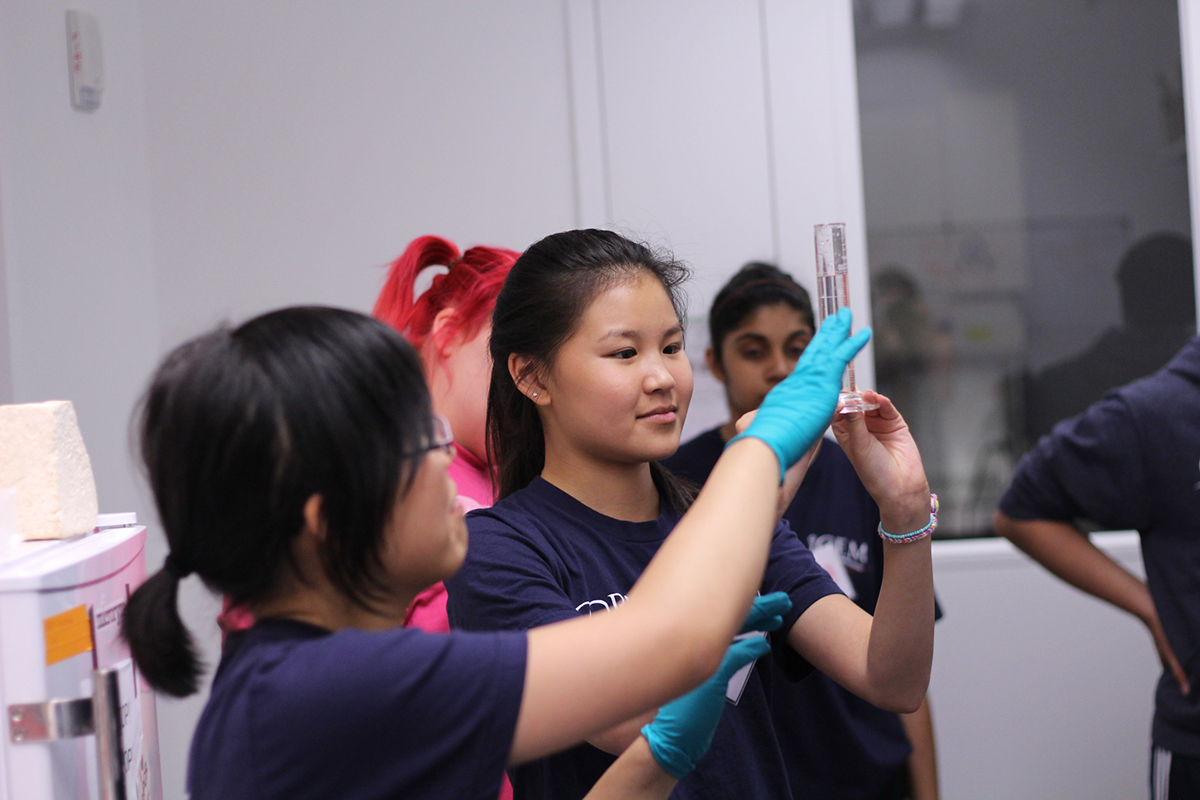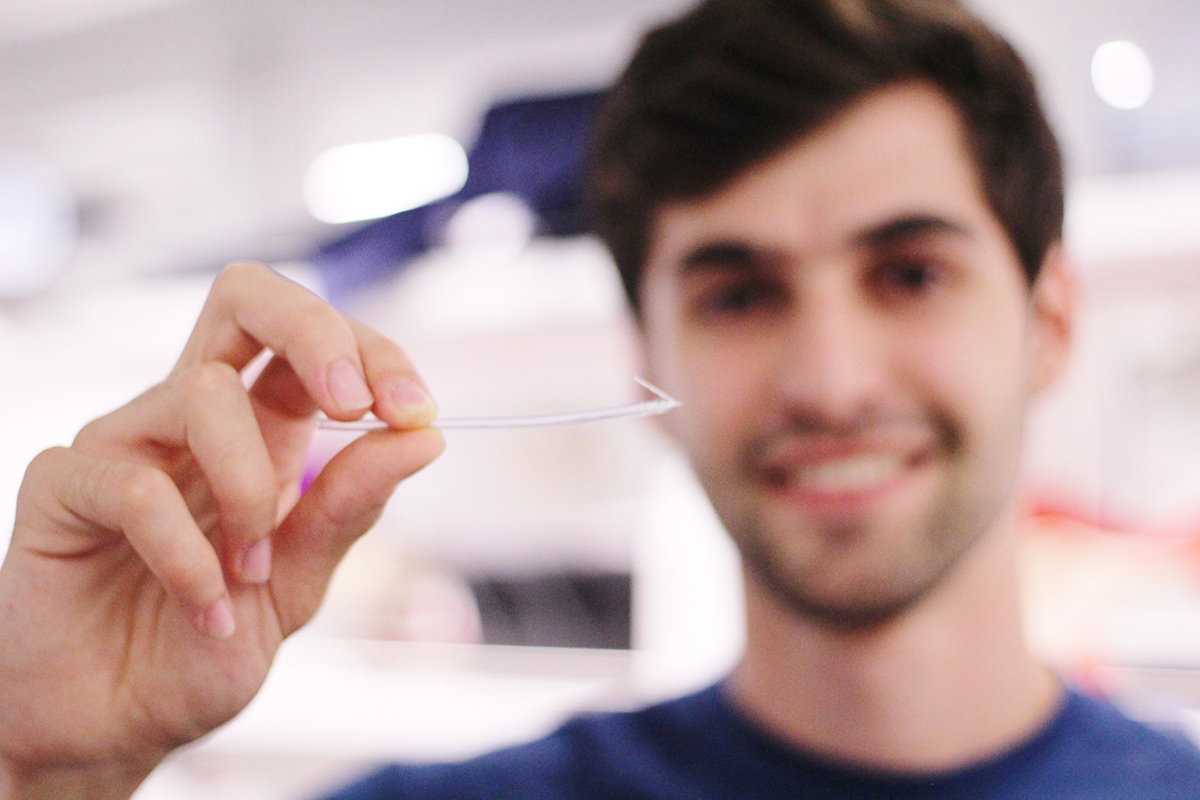Student team reels in genetic engineering awards at competition
By Blaine Friedlander


Cornell University’s entry for the iGEM (International Genetically Engineered Machine) synthetic biology competition – which featured 2,700 students on 280 teams from around the world – earned three awards and a gold medal at the 12th annual iGEM Giant Jamboree Sept. 28 in Boston.
The Cornell group – called fishPHARM – won awards for best environmental project, best applied design and the best supporting entrepreneurship.
By using synthetic biology, fishPHARM aimed to eradicate Bacterial Cold Water Disease (BCWD) typically found among salmon in either contaminated fresh water or fish farms, according to Jonlin Chen ’17, the team’s leader. When salmon catch this disease, their fins get lesions, sores and then fail. Eventually, the fish die.
For fish farms, aquaculture producers currently add antibiotics into the water, but that could lead to bacterial resistance and the antibiotics leaching into the surrounding environment.
The team made a biologically engineered peptide, Entericidin B, which is toxic to the BCWD disease-causing bacteria, Flavobacterium psychrophilum. The students produce Entericidin B through inert E.coli cells – essentially turning the cells into a tiny factory. Entericidin B is then purified from E. coli and placed in a biodegradable copolymer gel the team used as part of a drug delivery system. From there, the gel is put into a fish tag – think tiny, plastic harpoon about the size of a toothpick – that can be attached to the skin of the fish and slowly releases the peptide into an infected fish.
The group also developed the Heimdall Monitoring System, which can test water temperature, flow rate, dissolved oxygen and nitrate concentrations – all factors in fish health – with a corresponding mobile app they can monitor continuously.
“The iGEM competition has been a rewarding experience for the entire team,” said Chen. “Not only has it given undergraduates the opportunity to self-conduct the research project from start to end, but it has also connected us to a vast network of global researchers.”
Team members include: Arun Chakravorty ‘16, Tara Chari ‘18, Jonlin Chen ’17, Neil Chitrao ‘17, Yi Fan Chen ‘18, Grace Chuang ‘18, George Danias ‘17, Saie Ganoo ‘18, Reed Geisler ‘17, Eric Holmes ‘16, Kevin Hui ‘17, Sachiye Koide ‘18, Jane Liao ‘18, Neema Patel ‘16, Gargi Ratnaparkhi ‘17, Ritvik Sarkar ‘16, Rishabh Singh ‘17, Hao Yan ‘17, Wenjia You ’18, Casey Zhang ‘17 and Michelle Zhang ’16.
Media Contact
Get Cornell news delivered right to your inbox.
Subscribe